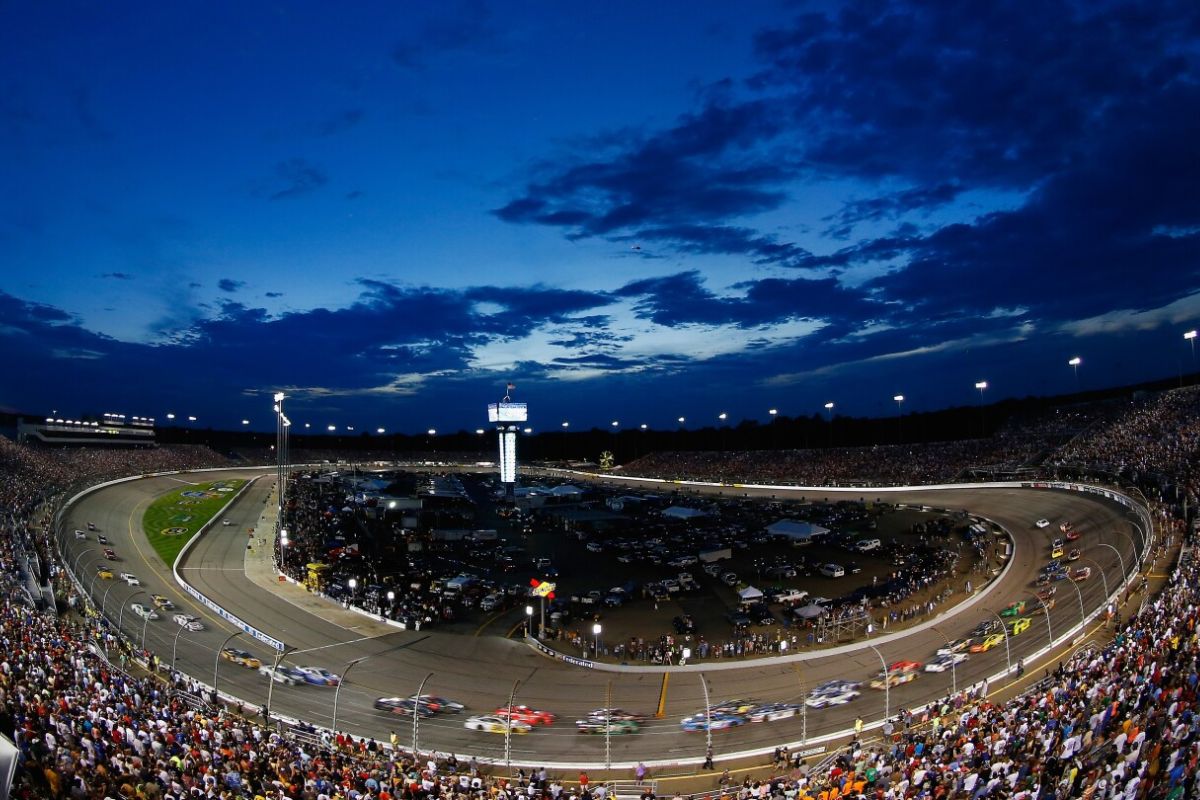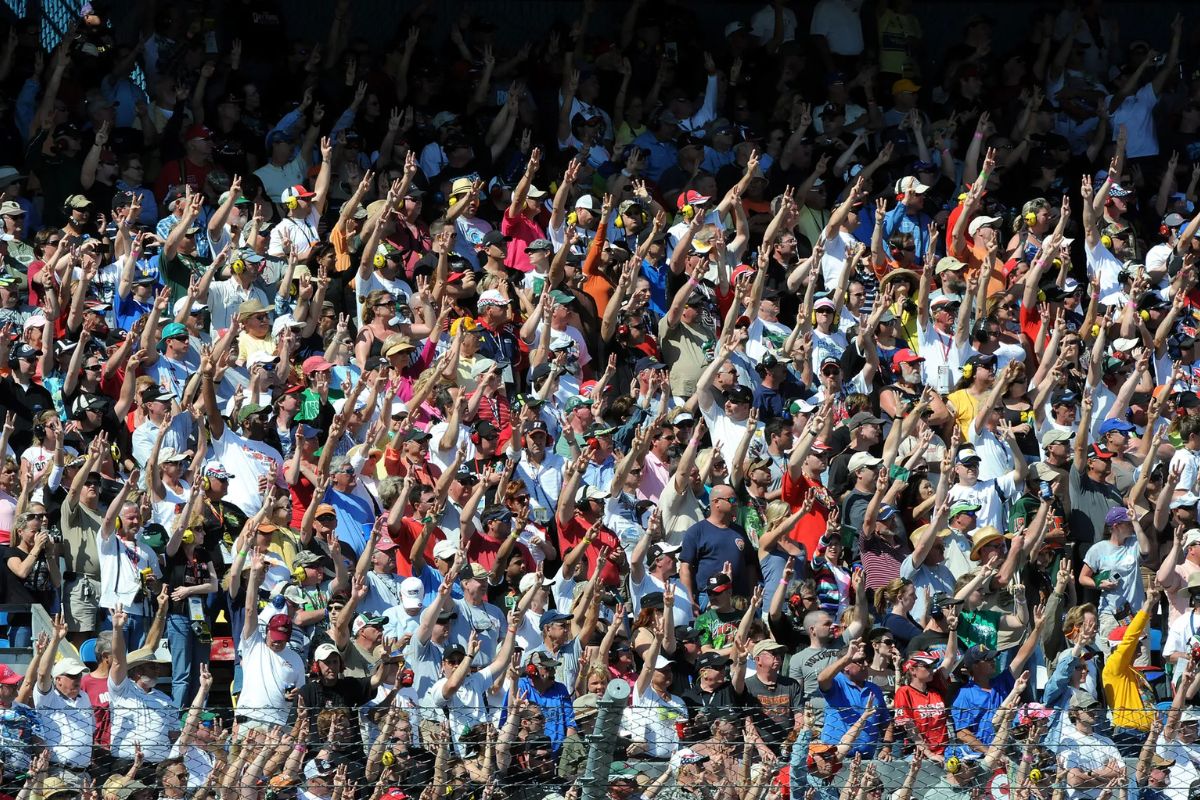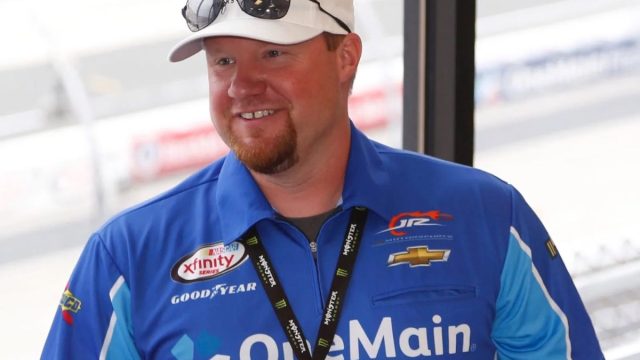Brett Griffin Sparks Debate: Brett Griffin’s recent commentary has stirred a contentious debate over Richmond Raceway’s role and its scheduling choices in NASCAR’s future. Critically, the decision to conduct the 2024 Spring race on Easter Sunday has been met with concerns about potential diminished attendance and broad community engagement issues. These concerns amplify the ongoing discussion on balancing tradition with innovation in NASCAR scheduling. Fans and insiders have proposed solutions aiming to optimize attendance while respecting significant holidays. As NASCAR weighs these considerations, the decisions made could profoundly influence the sport’s direction and its relationship with the fan base, offering a pivotal moment for introspection and potential adaptation.
Key Takeaways
- Brett Griffin’s debate centers on the controversial scheduling of the 2024 Spring race on Easter Sunday at Richmond Raceway.
- Fans express frustration over insufficient promotion, fearing low attendance and a lack of community engagement.
- Proposals include shifting race schedules and adding fan activities to respect holiday observances and boost interest.
- NASCAR faces criticism for potentially overlooking fan and community feedback in planning significant events.
- The situation at Richmond highlights a broader discussion on balancing tradition with innovation in NASCAR scheduling practices.
Richmond Raceway’s Significance and NASCAR’s Scheduling Dilemma
Richmond Raceway, boasting over seven decades of NASCAR history, now finds itself at the center of a challenging scheduling dilemma that could greatly impact its attendance and, by extension, NASCAR’s fan engagement. This venerable track in Virginia, renowned for hosting some of the most iconic moments in the sport, including Richard Petty’s unparalleled dominance in the 1970s who won 9 out of 10 races, is facing a unique challenge. The upcoming Cup Series event, although not unusual in its timing, unfortunately coincides with a major festival celebrated by over 80% of Americans. This clash presents a significant risk of reducing trackside visitors, potentially leaving many stands conspicuously empty.
Analyzing this scenario requires an understanding of both the historical significance of Richmond Raceway to NASCAR and the modern dynamics of event scheduling. The raceway has long been a cornerstone of NASCAR culture, acting as a battleground for legends and a crucible for emerging talents. Its storied past and the high-octane drama it consistently delivers have solidified its place in the hearts of racing enthusiasts.

However, the unintentional scheduling conflict introduces a complex layer to fan engagement strategies. With a large portion of the potential audience likely participating in widespread celebrations, the raceway faces the challenging task of competing for attention in an already saturated entertainment landscape. This situation shows the delicate balance required in planning major sporting events, highlighting the need for careful consideration of external factors that could influence attendance. The outcome of this weekend’s event could serve as a pivotal learning opportunity for NASCAR, emphasizing the importance of adaptive scheduling practices in maintaining fan interest and engagement.
Concerns and Criticisms from NASCAR Insiders
Given the intricate scheduling scenario facing Richmond Raceway, concerns and criticisms from NASCAR insiders have emerged, particularly focusing on the decision to hold the 2024 Spring race on Easter Sunday. The choice to proceed with the event on a day traditionally reserved for family gatherings and religious observances has prompted a debate among stakeholders about the potential impact on attendance and viewer engagement. With the race set for 4 PM EST, a time that does not deviate from the norm for Sunday races, the underlying issue appears to be less about timing and more about the specific date selection.
Insiders express apprehension regarding the potential for diminished turnout, an outcome that seems increasingly likely based on early indicators of fan sentiment. The apprehension is rooted in a broader context of how NASCAR schedules its events, with the decision to run a race on Easter reflecting broader scheduling challenges. Moreover, there is a sense that NASCAR may not be fully leveraging local marketing opportunities to mitigate the adverse effects of the date selection. This oversight could exacerbate concerns about attendance, as effective local marketing might otherwise serve to offset some of the anticipated decrease in engagement.
The criticisms from NASCAR insiders, thus, revolve not only around the decision to hold a race on a significant holiday but also around the perceived lack of proactive measures to address the foreseeable challenges associated with this decision. This scenario shows a need for NASCAR to balance tradition and innovation in its scheduling practices, ensuring that it remains sensitive to the cultural and familial commitments of its fan base while aiming to maintain the sport’s appeal and accessibility.
Richmond is a cool track. Unfortunately it has kinda lost its way on the Cup schedule for many reasons.
Racing there on Easter Sunday is the worst thing that could happen from an attendance and hype perspective.
Hurts my heart. https://t.co/V4ZdilrO2C
— Brett Griffin (@SpotterBrett) March 30, 2024
Community Response and Frustrations
The community’s reaction to the lack of visible promotion for the upcoming NASCAR event in Richmond reveals significant frustrations and highlights broader concerns regarding the sport’s outreach and engagement strategies. A concerned user’s sharing of his experience on X, noting the complete absence of promotional material in the days leading up to the event, has served as a catalyst for a wider conversation among NASCAR enthusiasts. This situation shows the necessity for a more aggressive and visible marketing approach to maintain and grow the sport’s fanbase.
The main points of frustration expressed by the community include:
- Lack of Visibility: There were no signs, commercials, or radio ads promoting the NASCAR event, leading to a general unawareness of the race among potential local attendees.
- Missed Opportunities: The absence of marketing efforts in a city hosting a race indicates missed opportunities to engage with both existing fans and the uninitiated.
- Concerns Over Fan Engagement: This scenario raises questions about NASCAR’s commitment to fan engagement, especially in local communities hosting the events.
- Impact on Event Attendance: The lack of promotion could potentially impact attendance figures, which are vital for the sport’s revenue and popularity.
- Long-term Repercussions: This situation may have broader implications for NASCAR’s brand and its ability to attract new fans, particularly in a competitive sports entertainment market.
These frustrations articulate a shared sentiment that effective promotion and engagement are critical for NASCAR’s continued success and growth. The community’s response serves as a reminder of the importance of marketing in sports management and the potential consequences of neglecting this aspect.
“Just met a couple in the elevator. They saw my shirt and said we just found out there was a race this weekend… we are just in town visiting family.”
“Easter Sunday races are very strange to me…” – (a fan on X)
Suggestions and Solutions Proposed by Fans
In response to the scheduling concerns raised by fans regarding the NASCAR event in Richmond, a variety of constructive suggestions and solutions have been proposed to enhance overall attendee experience and engagement. Recognizing the significant gap in the weekend schedule, particularly on Saturday evening leading into Easter Sunday, fans have articulated several ideas aimed at optimizing the schedule while respecting the traditional holiday observance.
With the Xfinity Series race at Richmond slated to be the final track activity on Saturday, fans have noticed a considerable gap in the evening schedule. This gap leaves a significant amount of time empty before the Cup Race at 4 PM on Sunday, prompting some to question NASCAR’s decision not to fill in the large void and allow the community to enjoy Easter as well.
The absence of additional racing events during this time has raised eyebrows among fans, who typically anticipate action-packed weekends at the track. Many wonder why NASCAR didn’t capitalize on the opportunity to provide more entertainment for spectators during the Easter weekend festivities.
For several years, the playoff race at Richmond Raceway was a spectacular nighttime affair, with the race happening under the glorious Virginia sky. The combination of high-stakes playoff drama and the vibrant atmosphere of a night race made it a fan-favorite event on the NASCAR calendar.
“I say have both races on Saturday Xfinity at 1pm and Cup at 6pm”
“I just don’t understand why they didn’t just run it Saturday and Xfinity tonight. Because it was just them and the Modifieds. Today could’ve been a doubleheader. 2 for the price of 1 deal.” – (A user on X)

Speculations on NASCAR’s Response
Acknowledging the variety of suggestions proposed by fans to enhance the Richmond NASCAR event experience, speculation mounts on how NASCAR officials might respond to this feedback. Given the pressure to avoid scheduling conflicts with significant holidays like Easter, officials are likely weighing various factors to address community concerns while maintaining the integrity and appeal of the NASCAR series.
In analyzing potential responses from NASCAR, several key considerations emerge:
- Schedule Adjustments: Officials might explore reshuffling event dates to prevent clashes with major holidays, ensuring fans do not have to choose between family commitments and their passion for racing.
- Fan Engagement Initiatives: Enhanced engagement efforts could be introduced, such as interactive fan zones or digital platforms for remote participation, to bolster the event’s appeal and inclusivity.
- Format Innovations: Considering suggestions for race format changes could lead to trials of new racing formats at Richmond, aiming to inject excitement and unpredictability into the event.
- Community Feedback Mechanisms: Establishing more formal channels for fan feedback, including surveys or forums, might be considered to better gauge fan sentiment and tailor future events to their preferences.
- Marketing and Promotion Strategies: Revamping marketing efforts to highlight the unique aspects of the Richmond race, emphasizing its historical significance and the quality of competition, could help reframe perceptions and attract a broader audience.
As NASCAR officials deliberate on these and other strategies, their response will be closely watched by fans and stakeholders alike, keen to see how the organization adapts to evolving expectations and preserves the sport’s vibrant legacy.
News in Brief
The discussion sparked by Brett Griffin concerning Richmond Raceway’s impact on NASCAR has highlighted a complex scheduling dilemma within the sport.
It has prompted a wide range of criticisms from insiders, alongside tangible frustrations within the community.
Fans have actively put forward various solutions, indicating a collective desire for constructive change.
This debate anticipates an important evaluation from NASCAR’s governing bodies, potentially leading to significant adjustments that could redefine the future trajectory of the sport’s scheduling and venue selection strategies.
Our Reader’s Queries
Q. Who does Brett Griffin spot for in NASCAR?
A. Brett Griffin, a seasoned NASCAR spotter, gained prominence for his role spotting for Clint Bowyer at Michael Waltrip Racing in the early 2010s, including Bowyer’s standout season in 2012. Griffin’s most recent stint was at Kaulig Racing, where he continued to apply his expertise.
ALSO READ: Brett Griffin Slams NASCAR’s Phoenix Package: Shocking Critique
